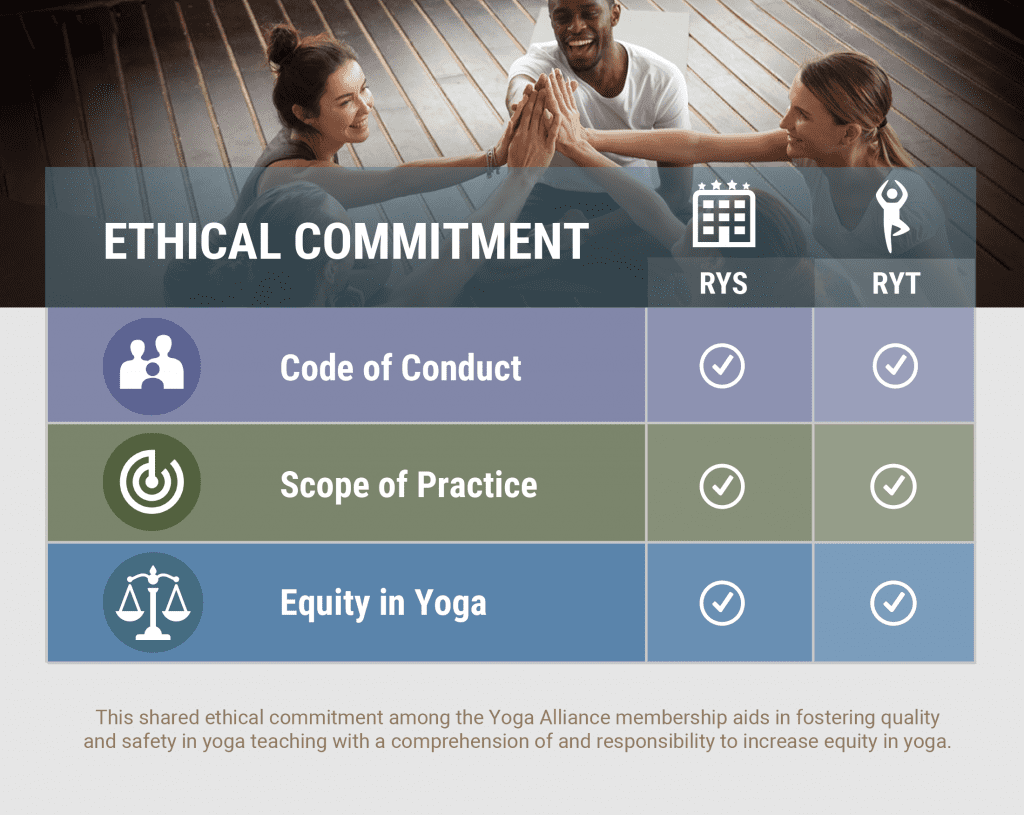The Ethical Commitment
Beginning February 27, 2020, all Yoga Alliance members—whether a Registered Yoga School (RYS) or a Registered Yoga Teacher (RYT), whether new or renewing—will abide by an Ethical Commitment, designed to unify members around shared principles and to foster safe and respectful guidelines for the profession of yoga teaching. This will assure the practicing public that Yoga Alliance members maintain a high level of teaching ability and accountability.
The Ethical Commitment will not be just words on paper but rather married with thoughtful action over time. Today, it is woven throughout the Code of Conduct and Scope of Practice. It’s built into the core curriculum now at the heart of our standards. It’s reflected in the strengthened application requirements as well as initial accountability processes. And soon, the tenets of the Ethical Commitment will be reflected in the grantmaking framework for the relaunched Yoga Alliance Foundation and evident in the introductory Equity in Yoga course we’re developing alongside experts and leaders in the field of equity.

The community voiced the need for this strengthened, contemporary Ethical Commitment loud and clear throughout the 18-month, community-led Standards Review Project that highlighted the imperative to promote equity, to reduce harm, to honor and leverage cultural differences, and to foster diversity and inclusion, all while maintaining the integrity of yoga’s cultural and historical roots.
This shared Ethical Commitment supports Yoga Alliance credentials as markers of high quality, safe, accessible, and equitable yoga teaching. In addition, this requirement (upon registration or renewal) elevates the public’s understanding of the yoga teaching profession and signals to this public the commitment Yoga Alliance members have made to building a yoga community for all.
The Ethical Commitment consists of three elements: an updated Code of Conduct, a new Scope of Practice, and a responsibility to Equity in Yoga.
Code of Conduct
The updated Code outlines proper behavior within RYS and RYT programs, classes, and other offerings, such as active inclusion, respect for student-teacher relationships, consent-based touch, and honesty in communications.
Scope of Practice
This first-ever Scope clearly defines the role of a yoga teacher, including responsibilities, limitations, and boundaries, such as advising and teaching according to credentials, experience, or abilities.
Equity in Yoga
This shared responsibility of a deeper understanding of the inequities within yoga and how they can result in exclusion helps us, collectively, build spaces and communities that unite.
